Creative Zen Hybrid SXFI: Two-minute review
The Creative Zen Hybrid SXFI headphones are an interesting proposition. With active noise cancellation, a ‘spatial holography’ mode known as Super X-Fi and a choice between wired and wireless listening (so, it’s tough to know whether they’d be better pitched as some of the best wireless over-ears, the best wired headphones or best noise-cancelling headphones, for example) they have a host of advanced-looking features in a stylish package, all for less than $100.
As a manufacturer of affordable audio hardware, Creative is in the difficult spot of trying to bring premium features to a low price, so there are corners cut in places. However, even the mild levels of noise cancellation are useful for softening outside noise, while a substantial battery life (up to 70 hours) means these cans last a lot longer than some higher-end headphones (cough, AirPods Max, cough). The support for Bluetooth 5.3 certainly helps to increase power efficiency and ensure these headphones last longer, too.
The stereo sound is somewhat to be expected for the price, though Creative’s proprietary SXFI feature does push your tracks harder, ensuring the headphones offer more than the sum of their affordable parts. While we had some issues using these headphones to watch TV shows or Twitch streams, music recreation over a phone or laptop was still lively for what you pay for.
Creative Zen Hybrid SXFI review: Price and release date
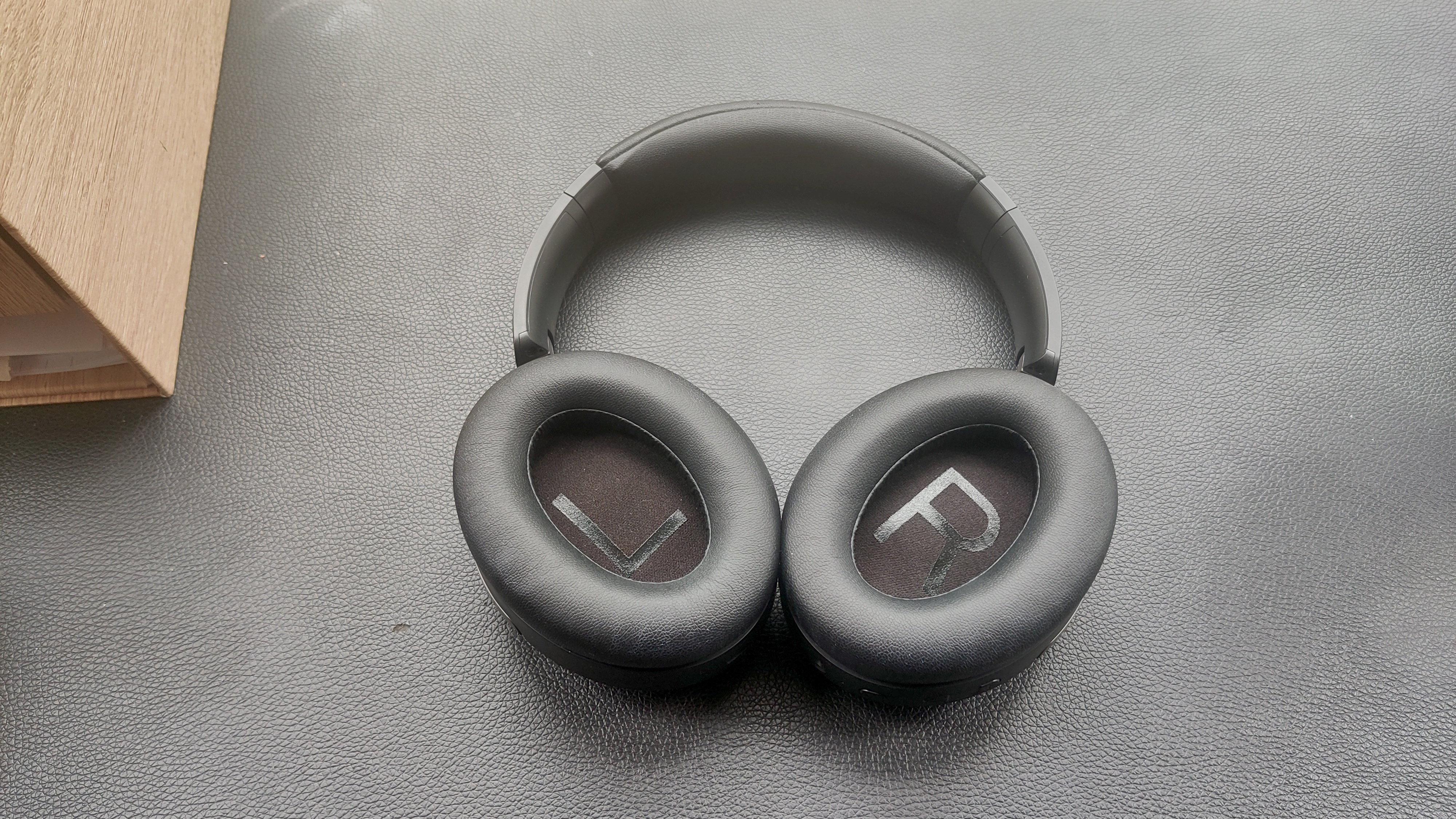
- $99.99 / £89.99 / AU$69.95
- Launched in May 2024
The Creative Zen Hybrid SXFI headphones retail for $99.99 / £89.99 / AU$69.95, having been released in May 2024.
As inexpensive as that may seem (when you consider something like the Sennheiser HD 620S headphones, which arrived on June 6 and retail for more than triple that, at $349.95 / £299.99 / AU$599) that MSRP is actually a little more than last year’s Zen Hybrid 2, which doesn’t make use of Creative’s spatial tech, but can now be found for as little as $49.99 / £59.99 in the US and UK.
Creative Zen Hybrid SXFI review: Specs
| Drivers | 40mm |
| Active noise cancellation | Yes (adaptive) |
| Battery life | 40 hours (with ANC), 70 hours (without ANC) |
| Weight | 0.6 lbs / 271g |
| Connectivity | 3.5mm, Bluetooth 5.3 |
| Frequency range | 100Hz – 10,000kHz |
| Waterproofing | Not rated |
Creative Zen Hybrid SXFI review: Features
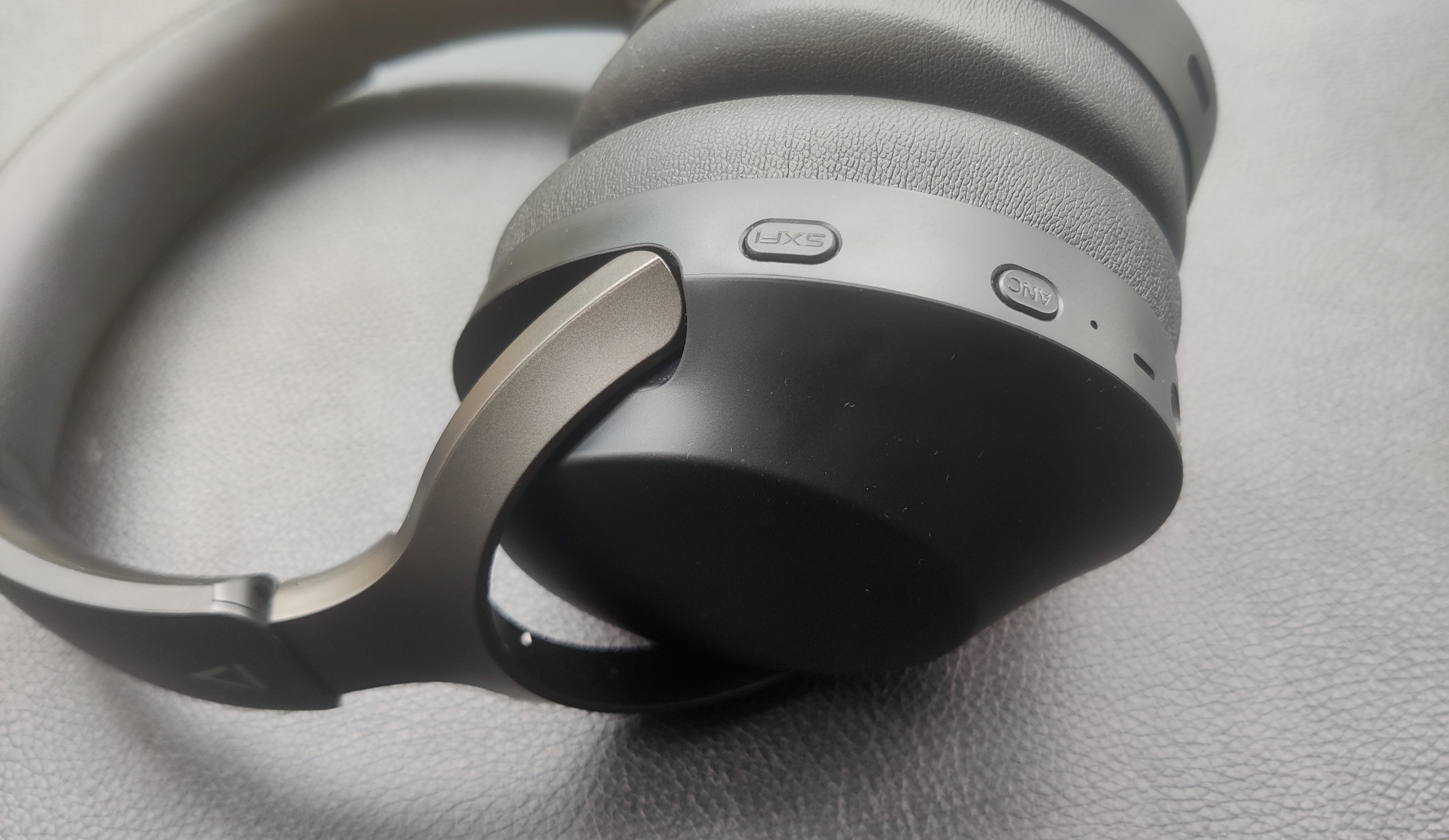
- Adaptive ANC and Ambient Mode
- SXFI app
- Bluetooth 5.3
On paper, the Creative Zen Hybrid SXFI headphones pack a lot of premium-sounding features at a very non-premium price.
To start with, there’s active noise cancellation, or ANC, with a button that lets you cycle between ANC (blocking outside noise), adaptive ANC (responding dynamically to variable outside noise), ambient listening (letting all the outside noise in), and no ANC at all. It’s great to see ANC here, but none of these modes feel overly distinct: there’s a minor benefit to listening with ANC, but the effect is quite limited, only mildly softening the sound of traffic of chatty commuters, while the lack of passive isolation in the headphones’ casing means that the ambient mode isn’t much different: you’re hearing most of what’s going on.
There’s also Creative’s SXFI, or Super X-Fi spatial audio tech, which is intended to capture “the listening experience of a high-end multi-speaker system in a professional studio”, by virtually upscaling its stereo audio into something approaching three-dimensional sound. There’s a dedicated SXFI app you need to download, before building a personalized sound profile based on the size and shape of your ears, but it is available for both desktop and mobile.
Elsewhere, you get the option to use either a wired (3.5mm) connection, or a wireless one through the power-efficient Bluetooth 5.3 standard – given the gradual fade-out of wired consumer audio, it’s great to have the option if you’re sporting older source devices or prefer a more reliable, wired connection.
Features score: 4 / 5
Creative Zen Hybrid SXFI review: Design
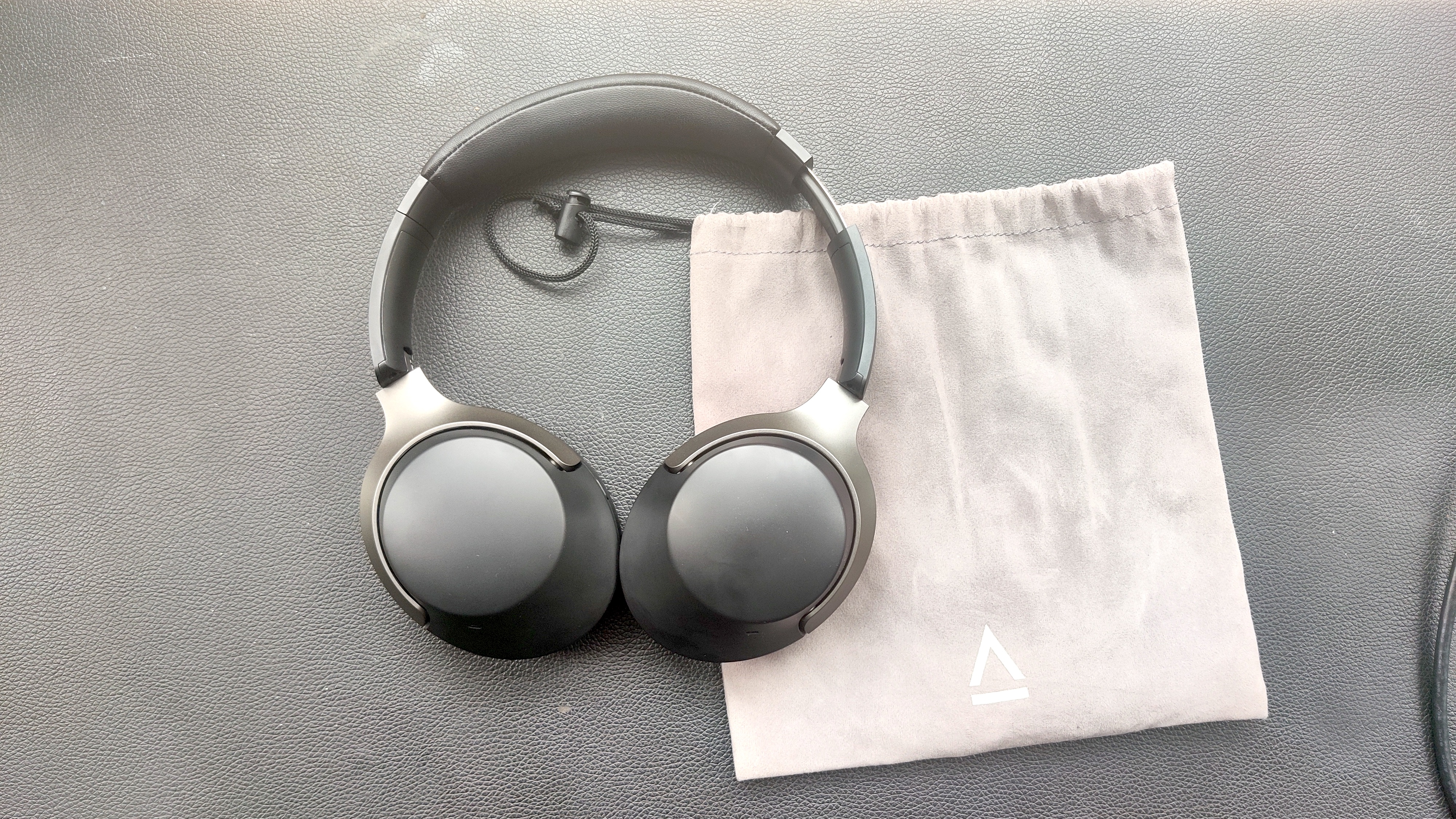
- Great to look at
- Light, with a cloth carry case
- Built-in buttons are hard to parse
For sub-$100 headphones, the Zen Hybrid SXFI look better than they should. They’re constructed with a muted black-gray plastic and a metal headband, with plenty of cushioning for the top and side of the head. The cushioning uses an artificial leather for a soft surface, which held up in our tests but looks like it could feasibly flake a little over time.
They’re also pleasingly lightweight, at just 271g, making them easy to wear for long periods and carry around without too much burden – aided by the soft gray cloth bag that comes included.
The left earcup carries a single USB-C port for charging, but the right earcup is where most of the action happens. You’ll find a power button, volume controls, and buttons for both ANC (active noise cancellation) and SXFI (spatial audio), as well as a 3.5mm headphones jack for those favoring wired connections.
While wearing the headphones, it’s a little hard at first to figure out which button you’re touching, given they’re all clustered together on the same ear and use the same kind of buttons – no toggles or touch controls to vary things here – though some muscle memory will no doubt help the longer you use them.
Design score: 4 / 5
Creative Zen Hybrid SXFI review: Sound quality
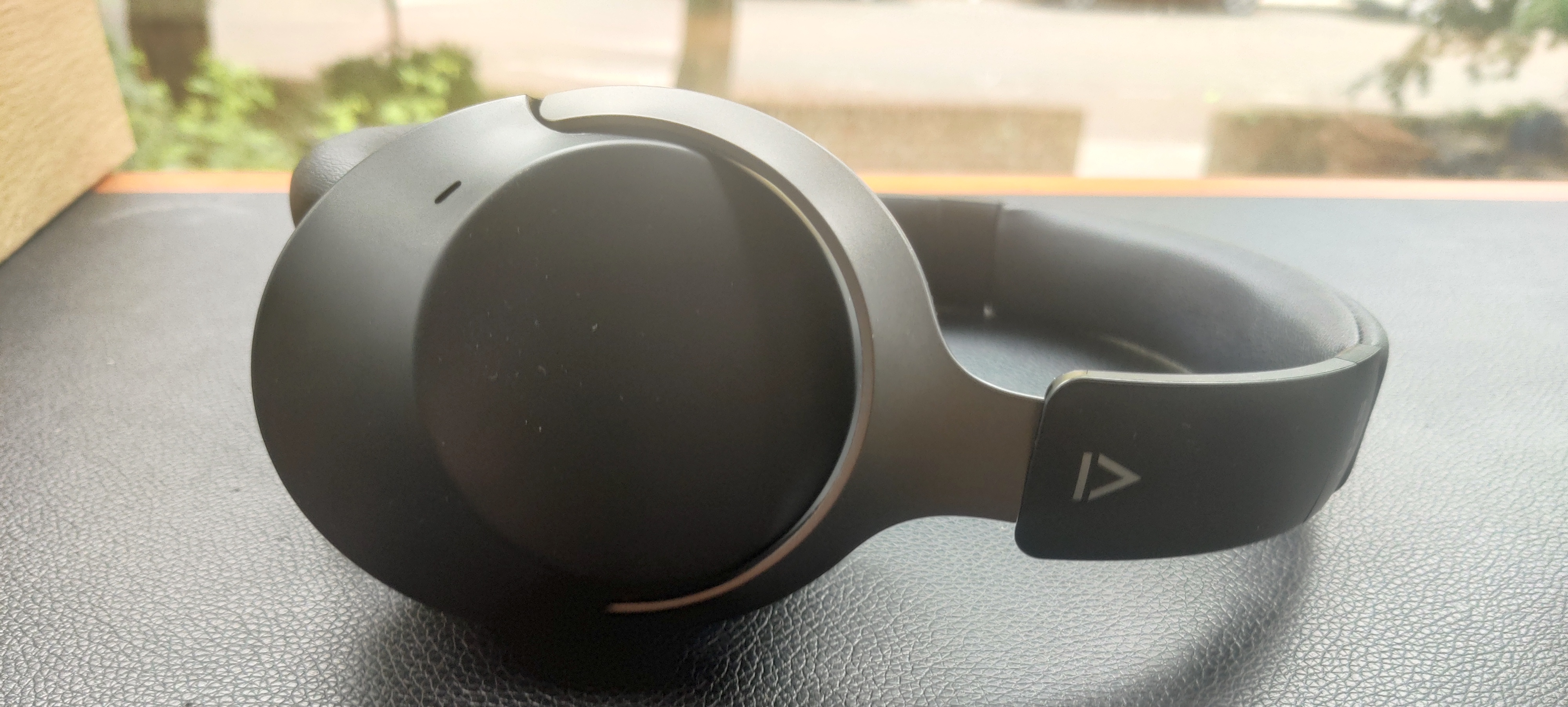
- Clear and crisp audio
- 40mm drivers, but light on bass response
- SXFI makes for much more interesting sound
More than anything else, the Creative Zen Hybrid SXFI headphones are fun to listen to. They feature clear, crisp audio, with a solid mid-range frequency response (100-10,000Hz, so lacking both deep 20Hz lows and the 20kHz highs from some other consumer headphones).
The bass is a little lacking – to be expected at this price – though the sizeable 40mm drivers do offer some presence in tracks where the bass is meant to be more prominent. Overall, a decent, if unremarkable audio performance for sub-$100 over-ear headphones.
The issue is that Super X-Fi, Creative’s spatial audio tech, ruins the standard stereo experience.
To clarify, switching SXFI on immediately levels up the audio, causing more resonant vocals and a sense of three-dimensional audio moving and echoing through space – not on the same level as Dolby Atmos audio, per se, but certainly giving the feeling of a sphere of audio around your head, aided by the SXFI app’s analysis of your head and ears.
Creative’s website states that “Super X-Fi captures the listening experience of a high-end multi-speaker system in a professional studio, and recreates the same expansive experience in your headphones,” using “computational audio intensive techniques to custom fit audio, for every individual, through a sophisticated Head and Ear-Mapping process.”
It’s effectively a form of virtual upscaling, a kind of cheat code to prop up cheaper drivers with some software trickery. But it works! Having switched SXFI on and off a few hundred times in my testing, it’s now hard to listen to anything without it, even though it increased my listener fatigue – after a couple of hours of listening with SXFI, I really needed a break. So, SXFI makes the audio more impactful, but possibly for shorter bursts than the standard stereo experience.
My major complaint with these headphones was in watching TV shows or Twitch streams. Across various devices, the Zen Hybrid SXFI struggled to recreate anything other than dialogue tracks, with atmospheric soundtracks disappearing entirely. You’ll be fine for music through your phone, but maybe give Netflix a miss.
Sound quality score: 3.5 / 5
Creative Zen Hybrid SXFI review: Value
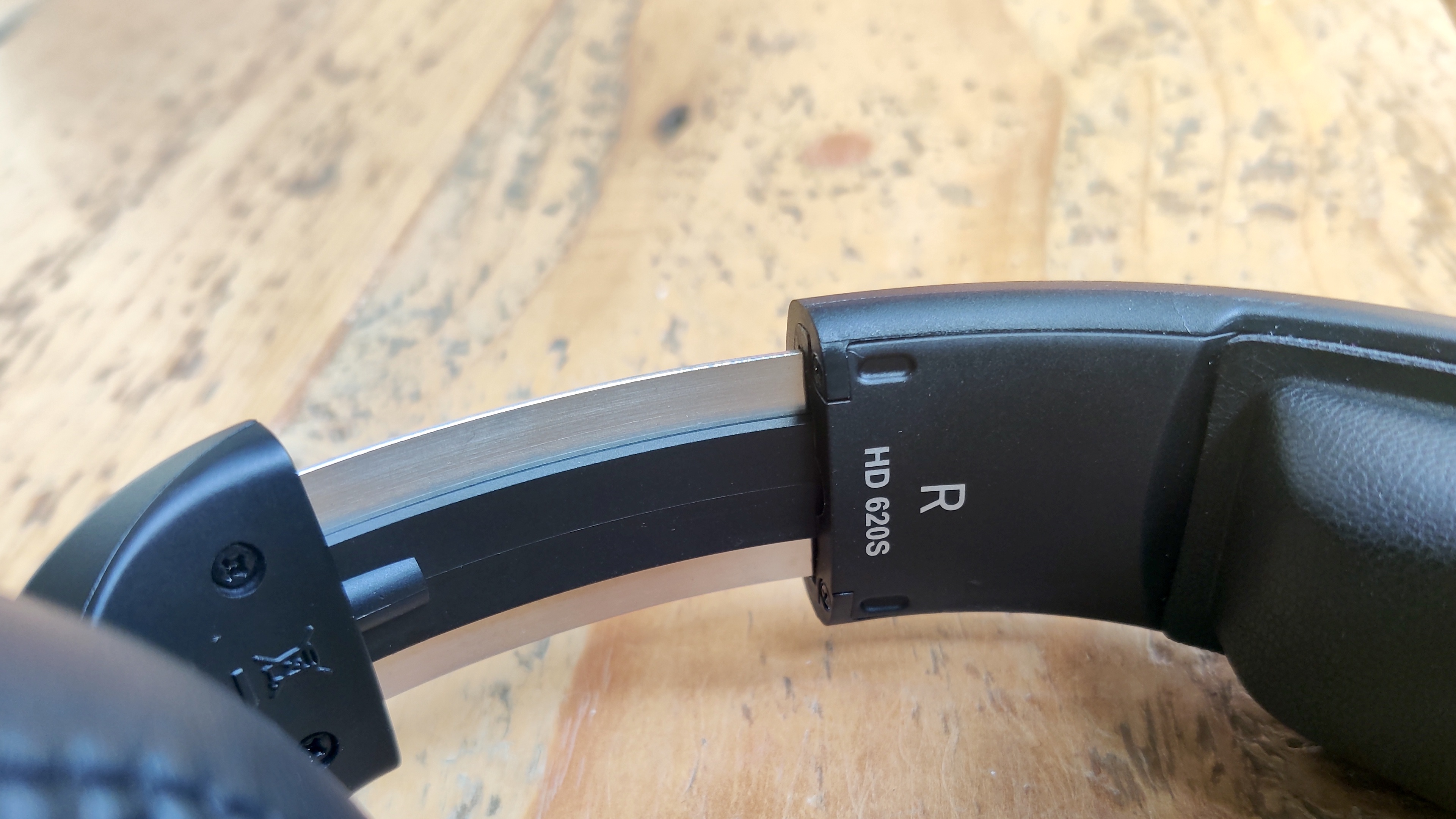
- Medley of premium features
- Sub-$100 price
- Looks better than you’d think
The Creative Zen Hybrid SXFI headphones are certainly good value – thanks to a host of advanced features including ANC, Super X-Fi audio, and the latest Bluetooth 5.3 standard. Not to mention a stylish design that suggests a somewhat higher asking price.
Its active noise cancellation leaves a little to be desired, but for the price there’s no doubt that its inclusion, and the little help it gives you, is still useful – while SXFI audio still helps to make sure these over-ear headphones sound better than they likely should for the price.
Value score: 4.5 / 5
Should I buy the Creative Zen Hybrid SXFI?
| Section | Notes | Score |
|---|---|---|
| Features | Wired and wireless connectivity, basic ANC, Bluetooth 5.3 and spatial SXFI audio is quite a roll call at this price. | 4 / 5 |
| Design | These headphones look good, though we wish the buttons had more to differentiate them | 4 / 5 |
| Sound quality | Clear, crisp audio that’s further assisted by Super X-Fi spatial tech – but don’t try watching TV | 3.5 / 5 |
| Value | You’re getting basic versions of premium perks, but Creative’s special spatial audio sauce adds a generous helping of value at the level | 4.5 / 5 |
Buy them if…
Don’t buy them if…
Creative Zen Hybrid SXFI review: Also consider
| Header Cell – Column 0 | Creative Zen Hybrid SXFI | 1More Sonoflow | Apple AirPods Max |
|---|---|---|---|
| Drivers | 40mm | 40mm | 40mm |
| Active noise cancellation | Yes | Yes | Yes |
| Battery life | 40 hours (with ANC), 70 hours (without ANC) | 50 hours (with ANC), 70 hours (without ANC) | 20 hours (with ANC) |
| Weight | 0.6 lbs / 271g | 0.55 lbs / 250g | 0.77lb / 350g |
| Connectivity | 3.5mm, Bluetooth 5.3 | Bluetooth 5.0 | Bluetooth 5.0 |
| Frequency response | 100Hz – 10kHz | Not stated | Not stated |
| Waterproofing | Not rated | Not rated | Not rated |
How I tested the Creative Zen Hybrid SXFI
- Tested for 2 weeks
- Used at home, on commutes, and in public cafes
- Predominantly tested using Spotify service on OnePlus 8
I’ve worked as a tech reporter and reviewer for seven years now, including a substantial stint at TechRadar as its News & Features Editor. I’ve tested countless headphones and covered audio tech in London, Las Vegas, Berlin and Shanghai.
My first over-ear headphones, back in 2009, were made by Creative, so I have a long history with the brand, and was excited to test out their products a full 15 years later.
I spent two weeks testing out the Creative Zen Hybrid SXFI headphones on several modes of transportation: flight, train and bus, as well as walks in my neighborhood. I primarily used my Android smartphone, a OnePlus 8, for testing, but switched to a Macbook Air for wired listening also.
- First reviewed in July 2024













